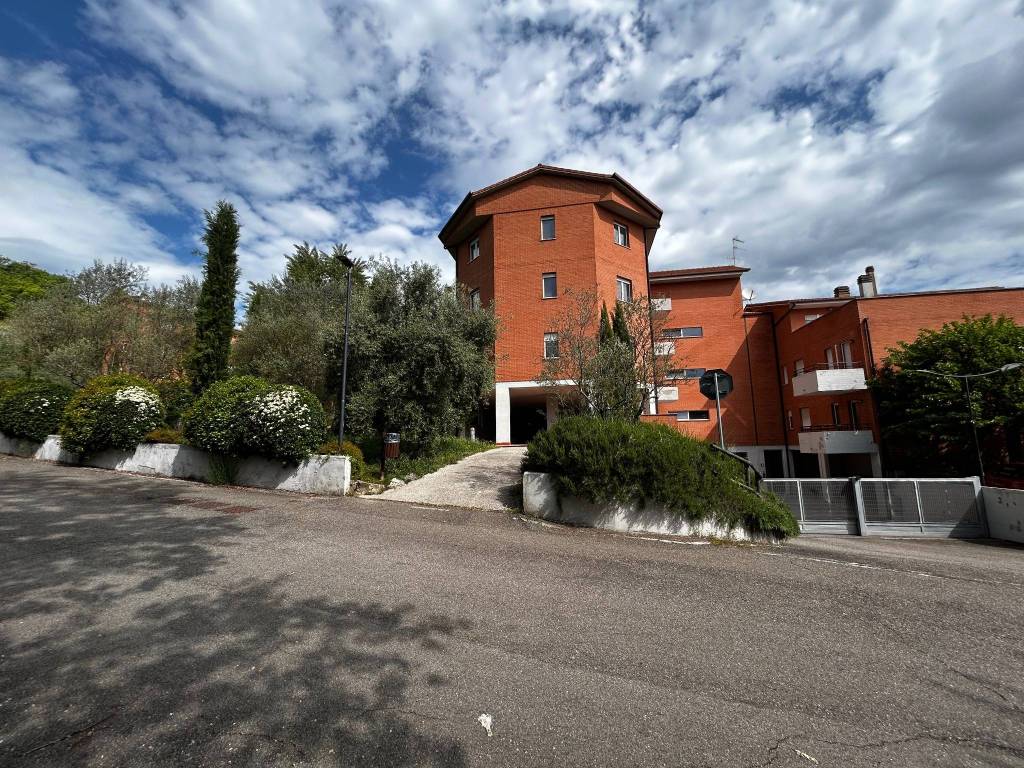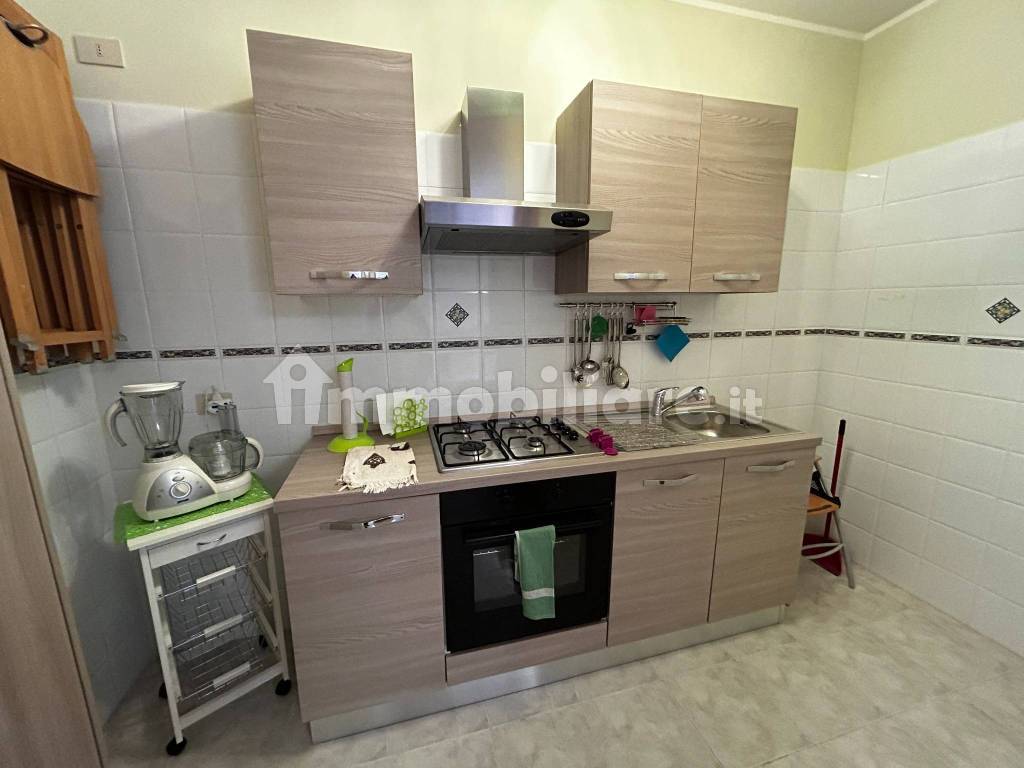
Studio via Leonardo da Vinci, Orte Scalo, Orte
OrteVia Leonardo da Vinci- € 55,000
- 1
- 55m²
- 1
- Yes
Description
This description has been translated automatically by Google Translate and may not be accurate
Orte scalo, in a quiet and residential context, we offer for sale a ground floor apartment consisting of a large living room with kitchenette, bedroom and bathroom. Assigned parking space attached. The building has a lift. Furniture is included in the price.
Excellent as an investment!
Call us for more information.
0761493445
Agenzia Bonifazi Orte
Of ancient origins, Orte (Horta, Hortae, Hurta) was probably a colony of Veii or Tarquinia, city of the Etruscan federation.
Orte, located just upstream of the confluence of the Nera into the Tiber, already important river port ("Ex Tuscis frumentum Tiberi venit: eo sustentata est plebs", Livy, Lib. II), became a vital center of the Roman road communication network with the construction of the Via Amerina, in 241-240 BC, following the capture of Falerii and the stabilization of the Roman dominion north of Veii.
Orte constitutes, from then until the 16th century, when at the behest of Pope Sixtus V Peretti the reconstruction of the bridge on the Via Flaminia (Ponte Felice) was carried out, the point crossing the Tiber north of Rome. The bridge, previously wooden, was replaced by a masonry bridge in the imperial age (so-called Augustus Bridge, whose substructures can still be admired along the river to the north-west of the cliff).
The stretch of the Via Amerina which It concerns the Orto area and descends from the Bassano Castle (today Bassano in Teverina) via a steep stretch of road, of which it is still possible to see the ancient paving stones during a pleasant walk. Having reached the foot of the Bassano plateau, the Amerina continued, flanked by a very probably navigable canal (even of this, today a rural ditch, it is possible to see the remains of the opus quadratum which constituted its embankment), until it reached the course of the Tiber, near the ancient river port of Seripola. From here it proceeded parallel to the river, up to the Bridge, where it crossed towards the so-called Campagna Trasteverina (Ortano territory) and then to the Amelia territory. The ancient course of the Via Amerina is still dotted with towers, dating back to the Byzantine period (Byzantine Corridor). The bridge remained functional throughout the Middle Ages, and acquired even more interest following the collapse of the Narni Bridge in 1054.
Since the 8th century with the donation of Liutprando Orte has been one of the oldest centers that were part of the first nucleus of the Papal State.
The period of greatest wealth for the city was the late Middle Ages, in which it was able to gain considerable autonomy and independence. Retaining the episcopal seat (from 453), with the privilege of the election of its own bishop by the local Chapter, Orte assumed the status of "free municipality" (of which it still preserves testimony today in the white and red colors of the banner) and equipped itself of its own statutes, to regulate a complex system of government.
The bridge was repeatedly destroyed following the flooding of the river; Monsignor Lando Leoncini tells us of a first partial destruction on the night of 14 November 1514, the damage of which was repaired with a wooden structure; a second on 2 December 1524; a third on 6 October 1530, following a very violent flood, which devastated the surrounding countryside. The bridge was never rebuilt, given the scourge of the plague, which had already weakened the city in 1486, and the continuous floods that marked the 16th century. It will also be necessary to consider the period of profound political instability that began in Italy after the death of Lorenzo De Medici.
The community invoked San Cesareo, deacon and martyr against river floods and drownings (the saint, condemned to be drowned in the sea of Terracina, in Rome he was invoked above all against the floods of the Tiber); in fact, in Orte there was a church dedicated to the saint (which disappeared in the 16th century) and the Porta di San Cesareo - still existing - which allowed the connection between the urban center and the Tiber.
Sixtus V's choice to favor the axis Via della Flaminia, with the construction of Ponte Felice under the Borghetto fortress in 1589, it was the city's most serious political defeat, which the influence of the noble families of Orto was not enough to avert.
From then on, a period of slow but profound decline, which culminated with the gradual loss of the status of episcopal see in favor of Civita Castellana (even if, until the reorganization of the dioceses which took place in the 20th century, which sanctioned the definitive transfer of the see to Civita Castellana, the bishops alternated stays in two sees, continuing to sign themselves "Episcopus Hortanae et Castellanae Ecclesiae"). The Diocese of Orte today remains a titular bishopric, while the Cathedral of Santa Maria Assunta retains the status of co-cathedral of the Diocese of Civita Castellana.
Only with the advent of the railway and the construction of the Rome-Ancona Railway (Pio Centrale Railway , inaugurated in 1866, of which Orte was a first class station), then of the Florence-Rome railway, then of the Autostrada del Sole, finally of the E45, of which Orte represents a strategic hub, the city returns to having its natural protagonism in the Italian and European transport network.--8d54d1b5121b386caea27f05af3b9c26!
Excellent as an investment!
Call us for more information.
0761493445
Agenzia Bonifazi Orte
Of ancient origins, Orte (Horta, Hortae, Hurta) was probably a colony of Veii or Tarquinia, city of the Etruscan federation.
Orte, located just upstream of the confluence of the Nera into the Tiber, already important river port ("Ex Tuscis frumentum Tiberi venit: eo sustentata est plebs", Livy, Lib. II), became a vital center of the Roman road communication network with the construction of the Via Amerina, in 241-240 BC, following the capture of Falerii and the stabilization of the Roman dominion north of Veii.
Orte constitutes, from then until the 16th century, when at the behest of Pope Sixtus V Peretti the reconstruction of the bridge on the Via Flaminia (Ponte Felice) was carried out, the point crossing the Tiber north of Rome. The bridge, previously wooden, was replaced by a masonry bridge in the imperial age (so-called Augustus Bridge, whose substructures can still be admired along the river to the north-west of the cliff).
The stretch of the Via Amerina which It concerns the Orto area and descends from the Bassano Castle (today Bassano in Teverina) via a steep stretch of road, of which it is still possible to see the ancient paving stones during a pleasant walk. Having reached the foot of the Bassano plateau, the Amerina continued, flanked by a very probably navigable canal (even of this, today a rural ditch, it is possible to see the remains of the opus quadratum which constituted its embankment), until it reached the course of the Tiber, near the ancient river port of Seripola. From here it proceeded parallel to the river, up to the Bridge, where it crossed towards the so-called Campagna Trasteverina (Ortano territory) and then to the Amelia territory. The ancient course of the Via Amerina is still dotted with towers, dating back to the Byzantine period (Byzantine Corridor). The bridge remained functional throughout the Middle Ages, and acquired even more interest following the collapse of the Narni Bridge in 1054.
Since the 8th century with the donation of Liutprando Orte has been one of the oldest centers that were part of the first nucleus of the Papal State.
The period of greatest wealth for the city was the late Middle Ages, in which it was able to gain considerable autonomy and independence. Retaining the episcopal seat (from 453), with the privilege of the election of its own bishop by the local Chapter, Orte assumed the status of "free municipality" (of which it still preserves testimony today in the white and red colors of the banner) and equipped itself of its own statutes, to regulate a complex system of government.
The bridge was repeatedly destroyed following the flooding of the river; Monsignor Lando Leoncini tells us of a first partial destruction on the night of 14 November 1514, the damage of which was repaired with a wooden structure; a second on 2 December 1524; a third on 6 October 1530, following a very violent flood, which devastated the surrounding countryside. The bridge was never rebuilt, given the scourge of the plague, which had already weakened the city in 1486, and the continuous floods that marked the 16th century. It will also be necessary to consider the period of profound political instability that began in Italy after the death of Lorenzo De Medici.
The community invoked San Cesareo, deacon and martyr against river floods and drownings (the saint, condemned to be drowned in the sea of Terracina, in Rome he was invoked above all against the floods of the Tiber); in fact, in Orte there was a church dedicated to the saint (which disappeared in the 16th century) and the Porta di San Cesareo - still existing - which allowed the connection between the urban center and the Tiber.
Sixtus V's choice to favor the axis Via della Flaminia, with the construction of Ponte Felice under the Borghetto fortress in 1589, it was the city's most serious political defeat, which the influence of the noble families of Orto was not enough to avert.
From then on, a period of slow but profound decline, which culminated with the gradual loss of the status of episcopal see in favor of Civita Castellana (even if, until the reorganization of the dioceses which took place in the 20th century, which sanctioned the definitive transfer of the see to Civita Castellana, the bishops alternated stays in two sees, continuing to sign themselves "Episcopus Hortanae et Castellanae Ecclesiae"). The Diocese of Orte today remains a titular bishopric, while the Cathedral of Santa Maria Assunta retains the status of co-cathedral of the Diocese of Civita Castellana.
Only with the advent of the railway and the construction of the Rome-Ancona Railway (Pio Centrale Railway , inaugurated in 1866, of which Orte was a first class station), then of the Florence-Rome railway, then of the Autostrada del Sole, finally of the E45, of which Orte represents a strategic hub, the city returns to having its natural protagonism in the Italian and European transport network.--8d54d1b5121b386caea27f05af3b9c26!
Information
- other features
- Electric gateOptic fiberVideo entryphoneSecurity doorDisabled accessTerraceFull day conciergeSingle tv systemFurnishedShared gardenWindow frames in triple glass / PVC
Features
- Reference and listing Date
- 81357 - 04/27/2024
- contract
- Sale
- type
- Apartment | Full ownership | Economic property class
- surface
- 55 m² - See detail
- rooms
- 1 room, 1 bathroom, kitchen nook
- floor
- 2 floors: Basement (-1), Ground floor, with lift, with disabled access
- total building floors
- 4 floors
- Car parking
- 1 in shared parking
- availability
- Available
- other features
- Electric gateOptic fiberVideo entryphoneSecurity doorTerraceFull day conciergeSingle tv systemFurnishedShared gardenWindow frames in triple glass / PVC
Expenses
- price
- € 55,000
- condominium fees
- € 50/month
Energy efficiency
- year of construction
- 2000
- condition
- Good condition / Liveable
- heating
- Independent, with radiators
- Energy Efficiency
- G≥ 175 kWh/m² year
Floorplan

Discover the best electricity and gas offers

E-Light Luce
Enel Energia's fixed-price electricity offer is more convenient for you

E-Light Gas
Enel Energia's fixed-price gas offer is more convenient for you
Additional options
















